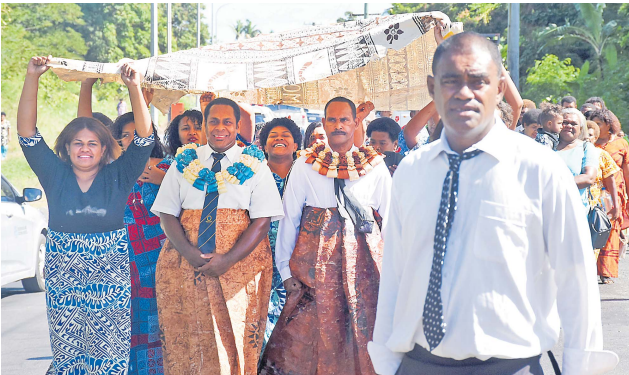BY SUNIL CHAND
A leadership crisis in our villages
FIJI’S 1193 iTaukei villages – the heart of our heritage – are adrift, grappling with a leadership crisis that stifles cultural and economic vitality. Of 6216 chiefly titles, 2735 (44 per cent) remain vacant – 336 in Tailevu, 55 in Macuata, 53 in Nadroga/Navosa. This vacuum fuels social decay, from rising crime and drugs to youth disengagement, and economic stagnation, as fertile lands lie idle while we import $800 million in food annually. The 2013 Constitution offers a starting point to reverse this decline, but bold legislative reforms are needed to unlock our villages’ potential.
Economic dependence
undermines our future
For over four decades, Fiji’s economic model has prioritised tourism (~40 per cent of GDP), remittances (~7 per cent of GDP), and imported food (60–70 per cent, including rice and flour), while 16,000 youth seek farm work abroad. This dependence drives food insecurity, rural decline, and urban drift, straining cities with housing shortages and social stress. Our villages, rich in agriculture, fisheries, dairy and eco-tourism potential, could transform this reality, but vacant and disputed chiefly titles hinder progress, leaving communities unable to secure grants or mobilise resources.
Colonial legacy and legislative gaps
The 2013 Constitution takes a principled position, supporting merit-based leadership through Section 5, which recognises customary practices like bestowing chiefly titles. Yet, it leaves specific legislative changes to governing laws, lacking provisions to reform outdated statutes like the iTaukei Lands Act (Sections 3, 17), iTaukei Affairs Act (Sections 4, 6), and Native Lands Act (Sections 5, 16). These laws, rooted in the 1874 Cession’s rigid genealogical rules, disrupted community-driven leadership based on courage, wisdom, and service to the vanua. Today, the iTaukei Lands and Fisheries Commission struggles with disputes, perpetuating a ceremonial system disconnected from community needs.
Restoring trust through
cultural protocols
Public court battles, like those in Macuata and Lau, erode trust in traditional and governmental leadership. Amending the Native Lands Act (Section 16) to mandate private resolutions through cultural protocols – tokatoka, mataqali, and yavusa nominations – would restore dignity and community faith. The Ministry of iTaukei Affairs has cut vacancies from 51 per cent to 44 per cent, but revising the iTaukei Affairs Act (Section 6) to regulate merit-based succession is critical to empower vanua to select capable chiefs.
A vision for vibrant villages
Imagine our villages thriving: sustainable farms slashing our $800 million food import bill, eco-tourism boosting local economies, and youth finding jobs at home. Revising the iTaukei Lands Act (Section 3) to prioritise merit-based leadership and limit the State’s role to recognising chiefs would unlock this potential. Investments in renewable energy, like Energy Fiji’s solar projects, and agriculture, as seen in Taveuni’s Somosomo Hydro Project, can make villages vibrant hubs. Youth councils, backed by the Ministry of Youth and Sports, could engage young iTaukei, ensuring cultural and economic continuity.
A call to reclaim our future
Fiji stands at a crossroads. The 2013 Constitution provides a foundation, but our villages are powerhouses of potential. By reforming colonial-influenced laws, resolving disputes privately, and embracing self-sufficiency, we can restore the vanua’s spark. Lawmakers must amend the iTaukei Lands Act, iTaukei Affairs Act, and Native Lands Act to streamline succession and invest in village-led agriculture and renewable energy. Chiefs must lead, not merely symbolise the past. Let our 1193 koro unite culture and economy for a sovereign Fiji. The time to act is now.

